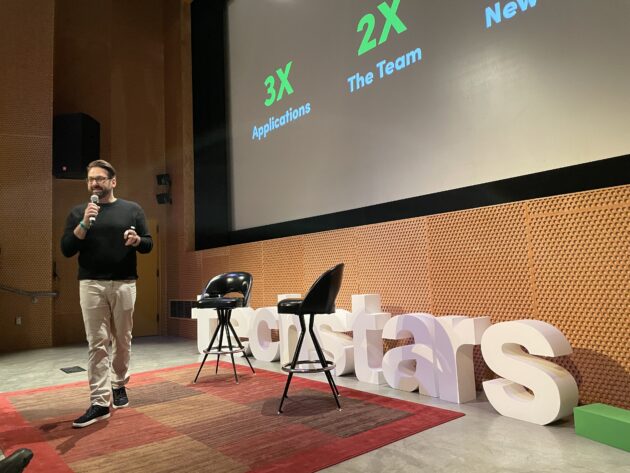
— Seattle-based application security and delivery giant F5 announced two new executive appointments this week: Lyra Schramm, the company’s new chief people officer, and Kunal Anand, chief technology officer.
Schramm comes from Google, where she spent nearly a decade in various human resources leadership roles, most recently as vice president of people strategy. She also previously worked at the Gates Foundation as a deputy director, and at Amazon as head of talent acquisition for AWS.
Anand is the former chief technology officer and chief information security officer at Imperva, a cybersecurity company recently acquired by Thales. He previously co-founded Prevoty, which was acquired by Imperva in 2018, and led technology efforts at BBC and NASA’s Jet Propulsion Laboratory.
Both new execs will hold executive vice president titles.
F5 reported $693 million in revenue for its most recent quarter, down 1% year-over-year. Its stock is up 8% this year.
Other key personnel changes across the Pacific Northwest tech industry:
— Adaptive Biotechnologies named Kyle Piskel as its new chief financial officer. Piskel joined the Seattle-based biotech company in 2015 and was most recently principal accounting officer. He replaces Tycho Peterson, who is departing to pursue another opportunity.
Adaptive also announced this week that it will restructure its Minimal Residual Disease (MRD) and Immune Medicine businesses and continue running both within the company. Adaptive previously hired Goldman Sachs to explore “strategic alternatives” for the businesses. The company’s stock was down more than 9% on Wednesday.
— Bryan Copley, CEO and co-founder of Seattle real estate data startup CityBldr, is now a planning commissioner for the City of Redmond. “Excited to build the future Redmond,” Copley wrote on LinkedIn.
— Meir Lakhovsky, a longtime Seattle-based product leader, joined enterprise AI startup Gradient as vice president of product management.
— Seattle-based cannabis software company Leafly announced that Michael Blue resigned as chair of its board. The company also added Jeffrey Monat and Andres Nannetti to its board, and appointed Alan Pickerill as new chair of the board.

— Former Techstars Seattle leaders Marius Ciocirlan and Sarah Studer announced that they are exploring new opportunities outside of Techstars following the surprise shutdown of the startup accelerator in February.
Ciocirlan joined Techstars Seattle in 2022 as its managing director. Techstars said in February that Ciocirlan would become managing director for the remote-first Techstars Anywhere program. But he wrote on LinkedIn last week that he’s moving on from the company.

“I was honored for the opportunity to have led the Techstars Seattle Accelerator and to have invested in and supported 36 companies,” wrote on LinkedIn.
Before joining Techstars, Ciocirlan co-founded ShareGrid, a marketplace for filmmakers and photographers to rent and sell their equipment that was acquired by Backstage. He was also a product designer for Groupon, Kromatic Entertainment, and Samsung.
Studer, a longtime fixture in Seattle’s startup community, joined Techstars Seattle in 2021 and was director of platform. Techstars had offered Studer a new position within Techstars. But she is also moving on.
“I’ve had the privilege of supporting founders from 60 companies during my tenure, and the experiences I have gained and the relationships I’ve formed have been invaluable – what a great ride!” she wrote on LinkedIn.
Studer, former managing director of Impact Hub Seattle and assistant director of the University of Washington’s entrepreneurship program, is currently working a contract role as “chief storyteller” for TrueMedia, a new Seattle-based nonprofit aiming to combat misinformation and identify deepfakes.
Carson Nye, previously an investment manager at Techstars Seattle, is now at Two Ravens, a new venture firm in Seattle led by former Techstars Seattle managing director Isaac Kato.
More than 160 startups participated in the core Techstars Seattle accelerator since it launched in 2010. Techstars said in February it plans to focus on cities with higher concentration of venture capital activity.

